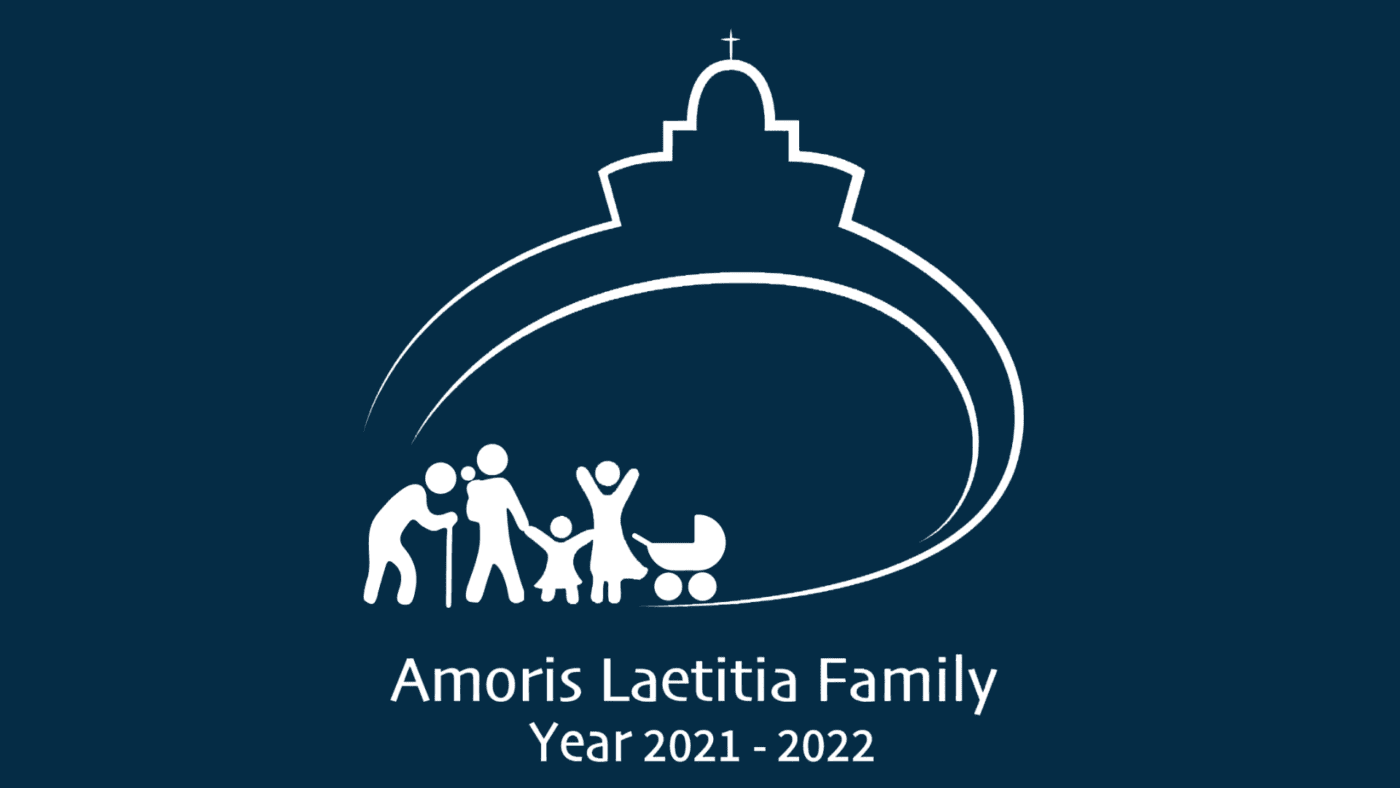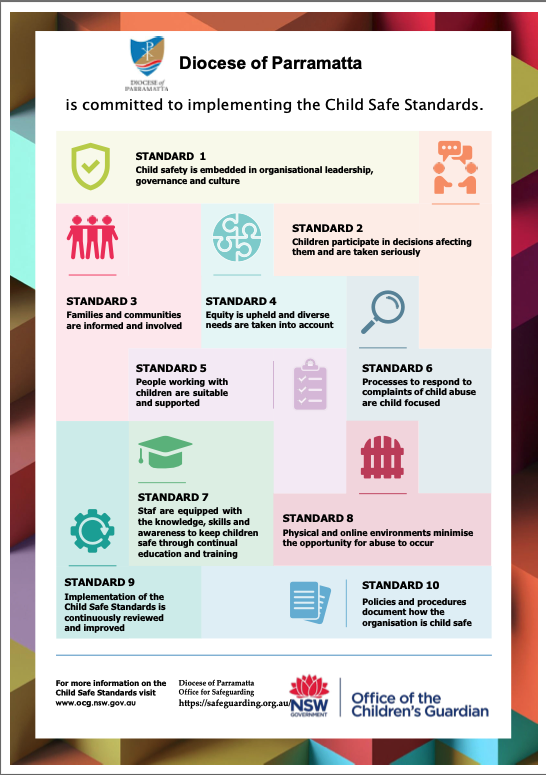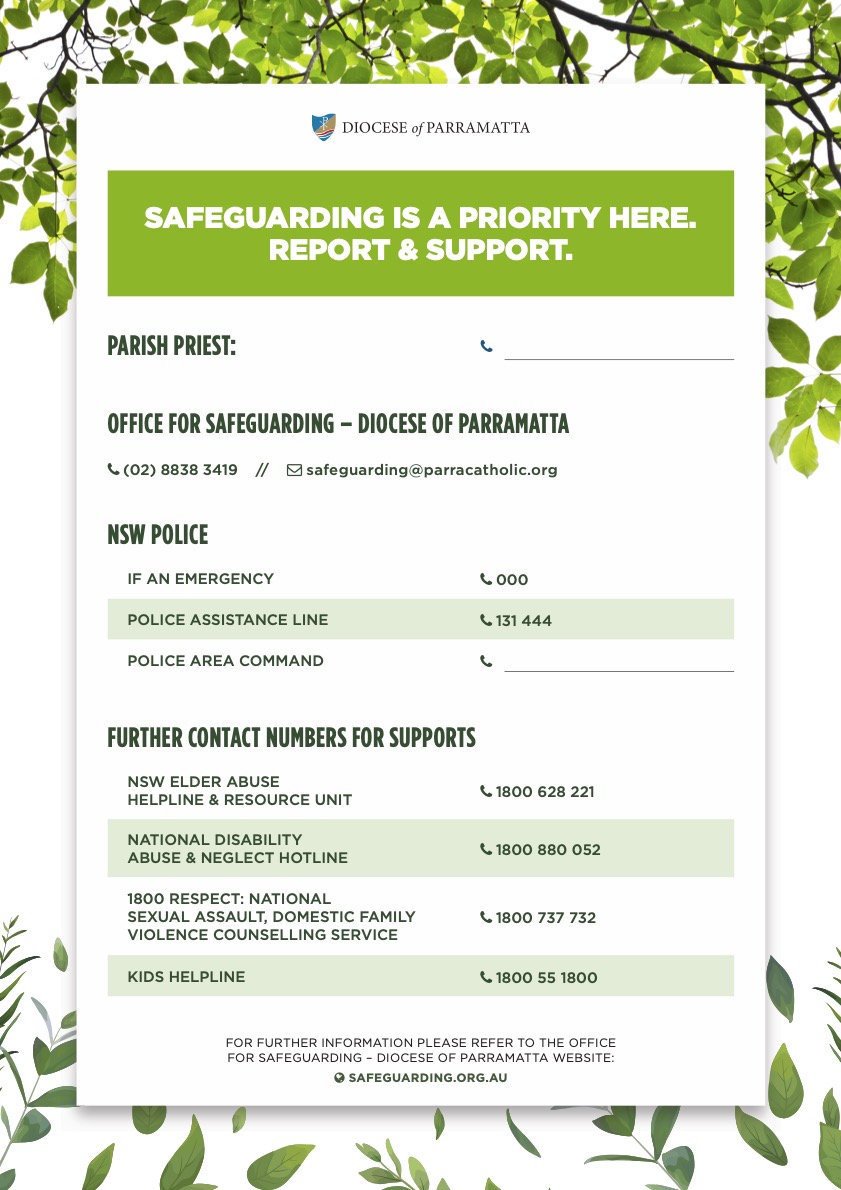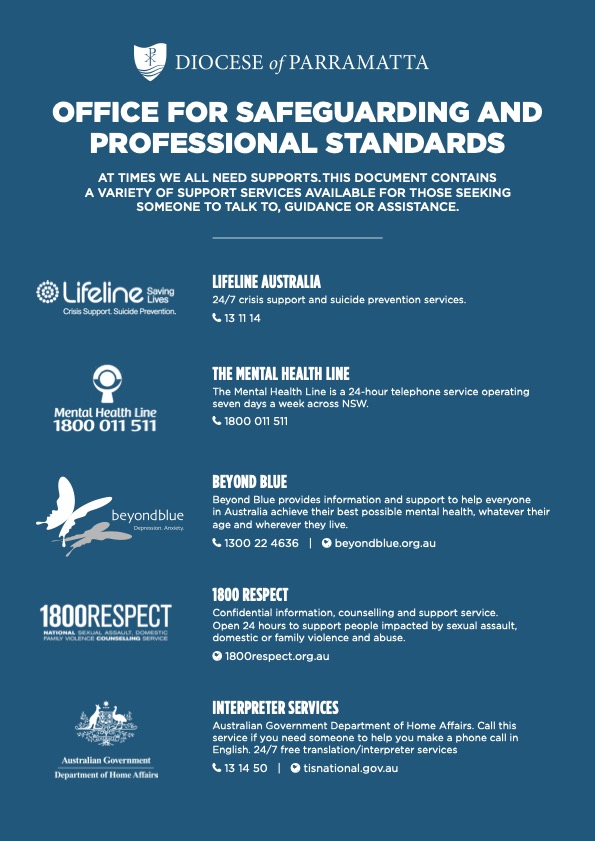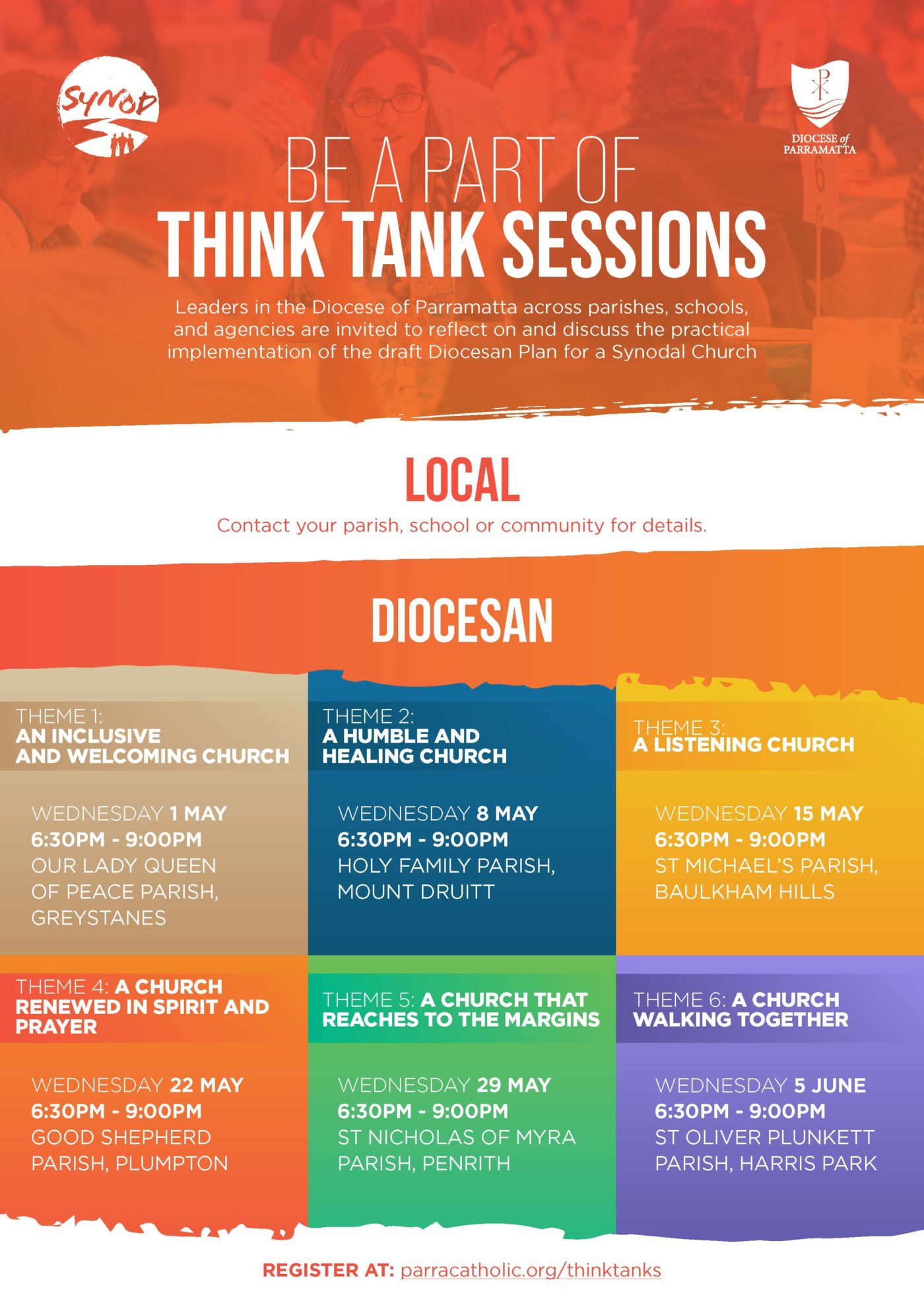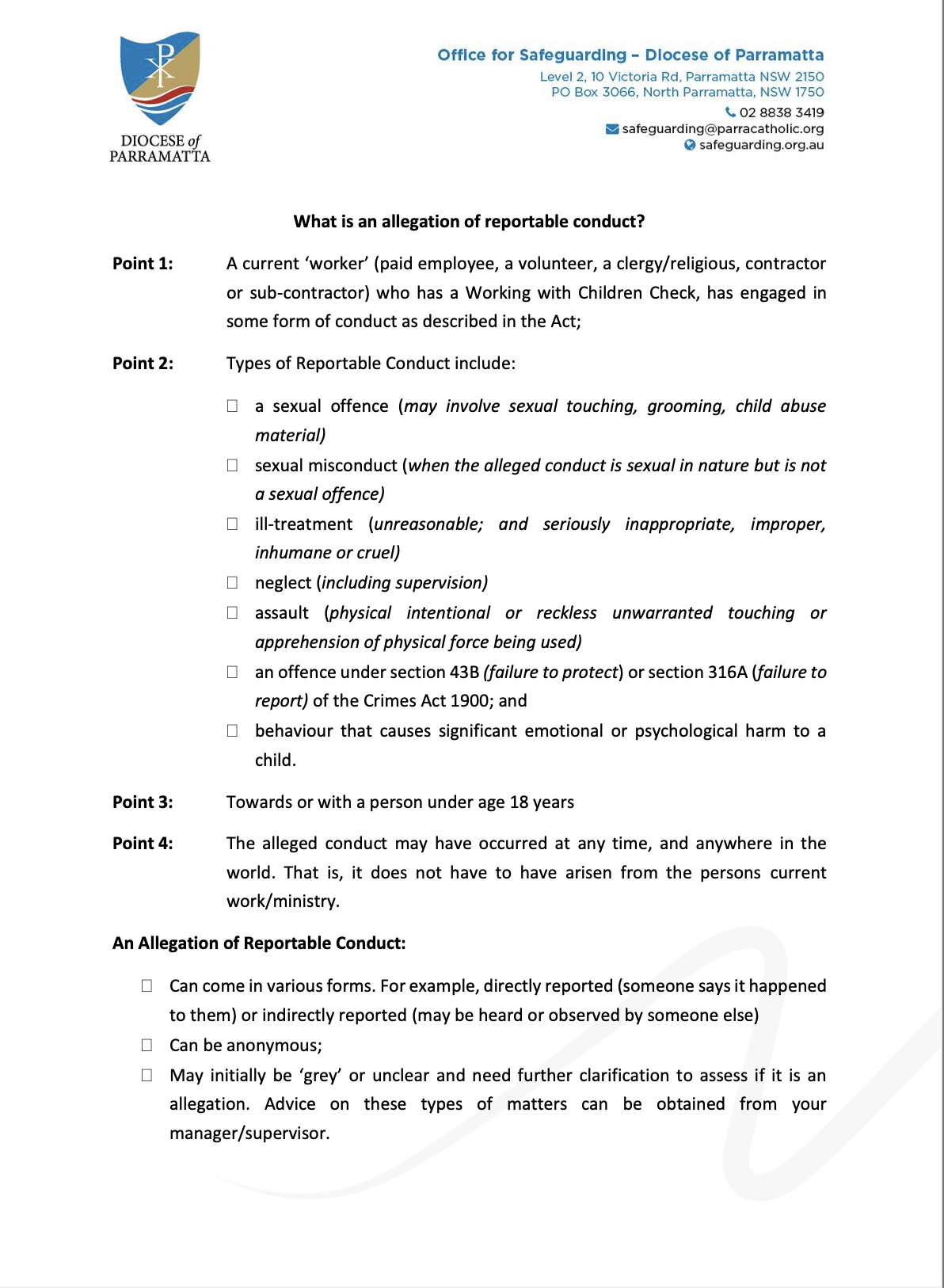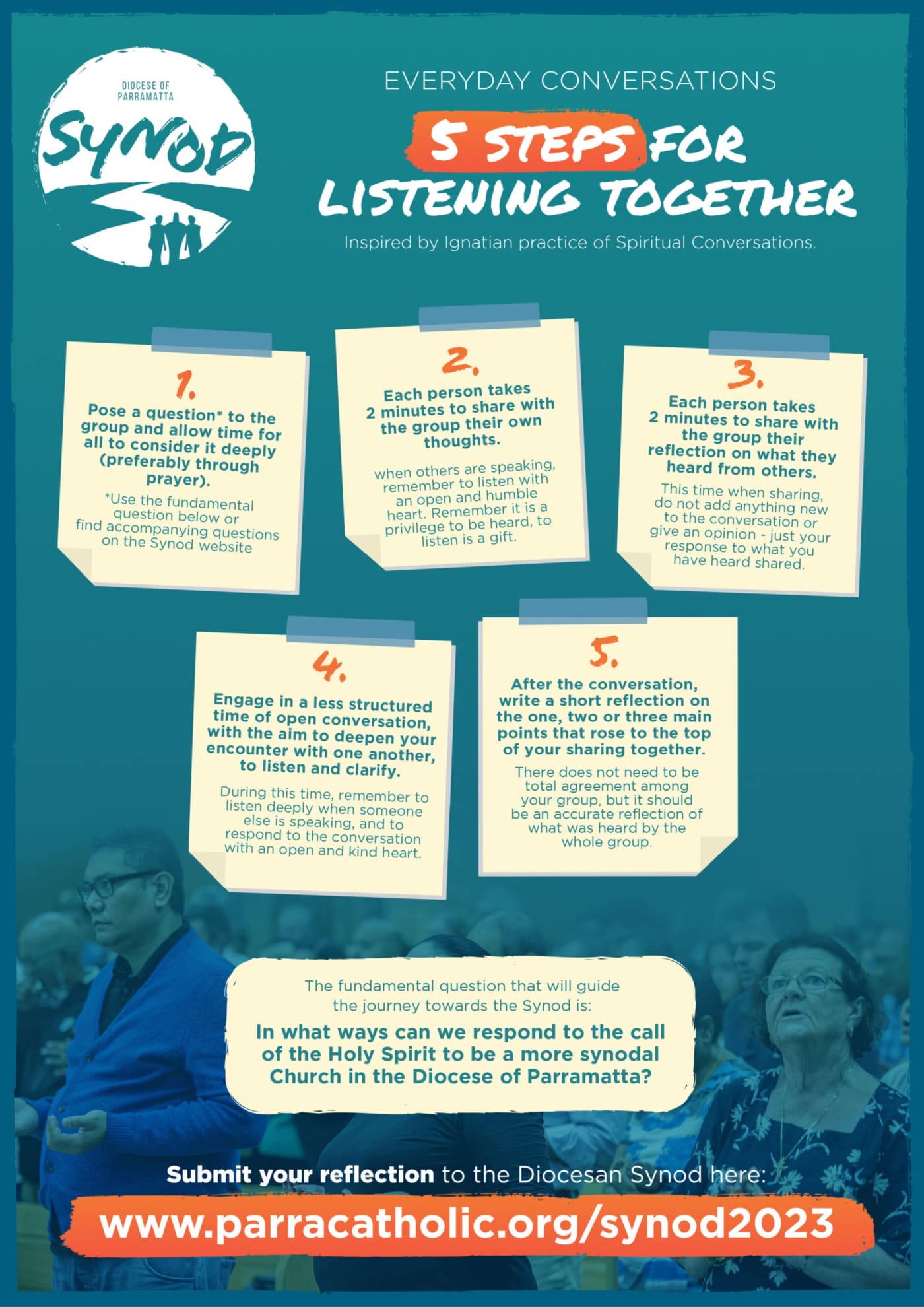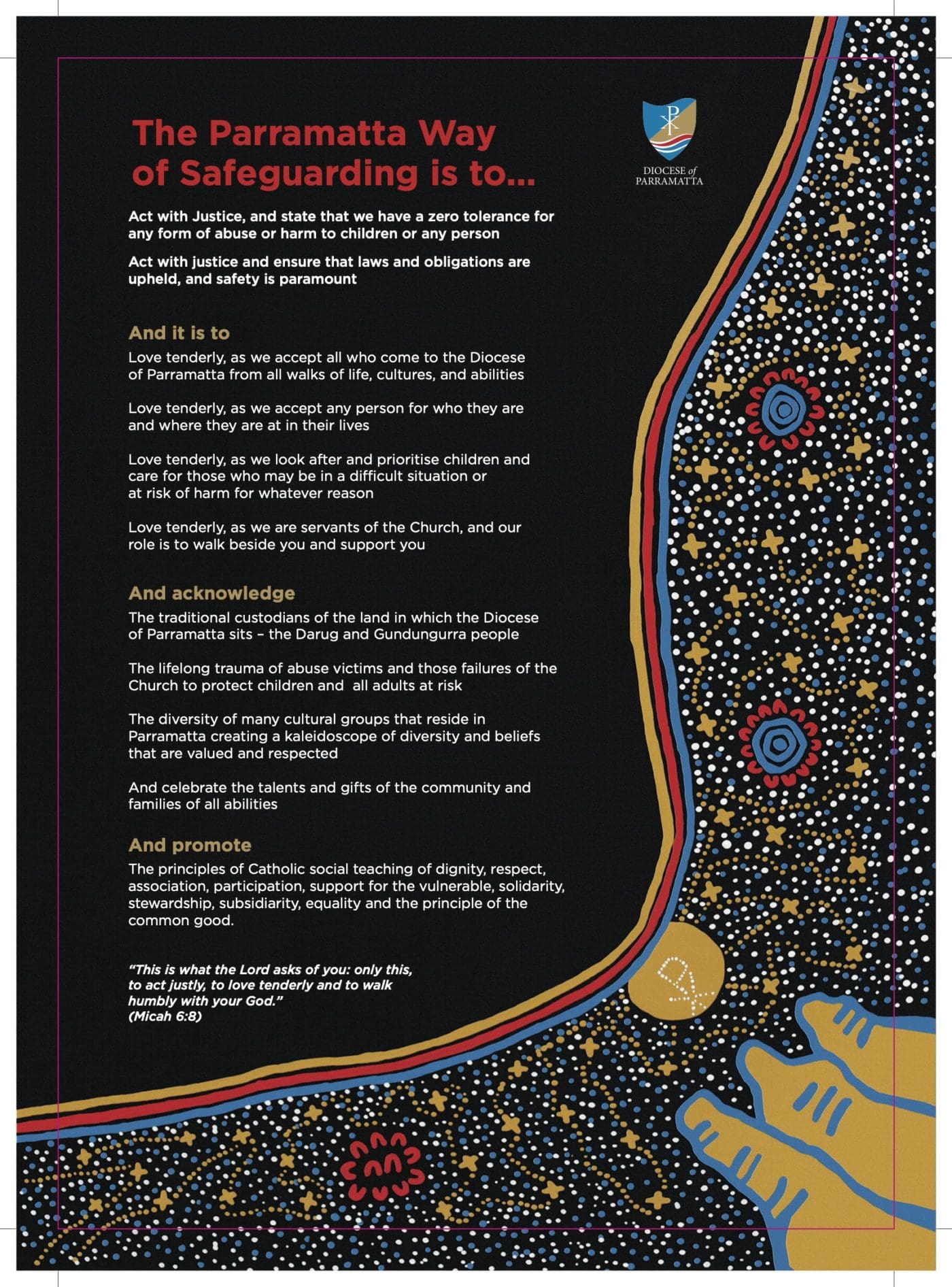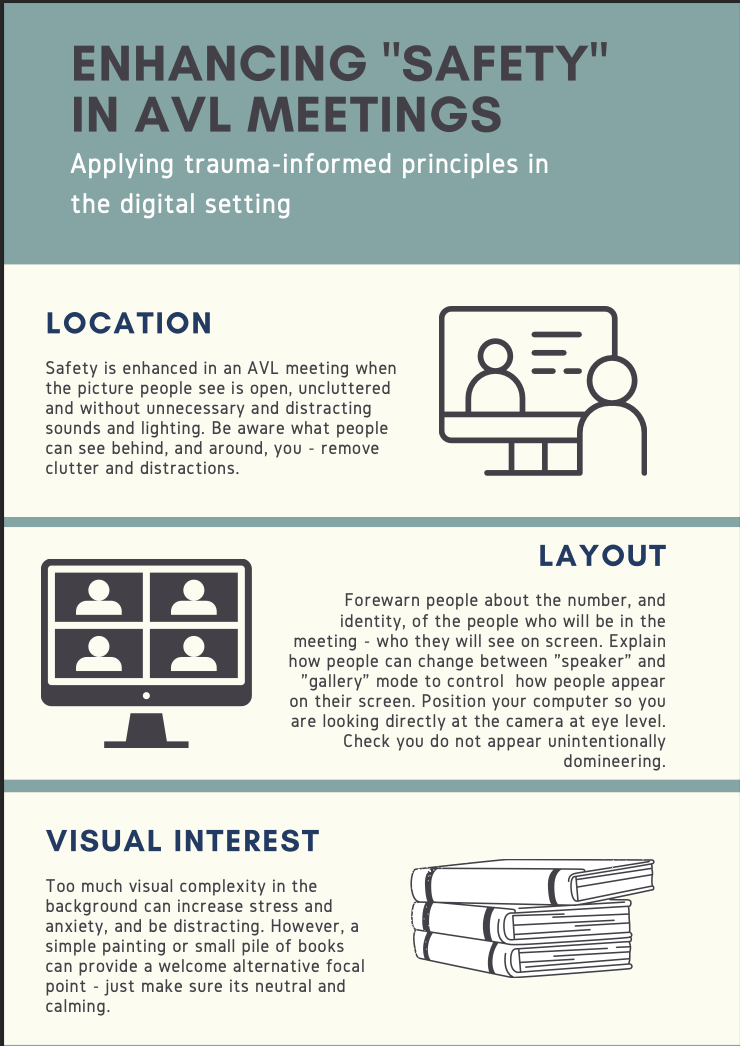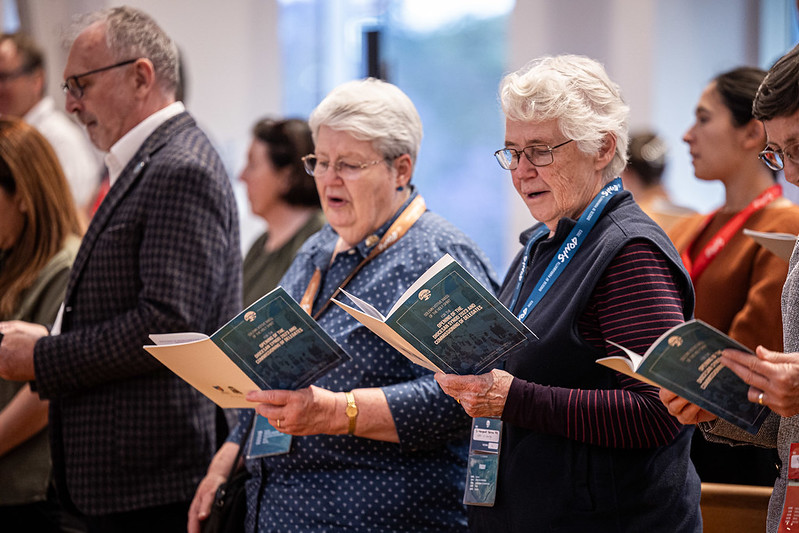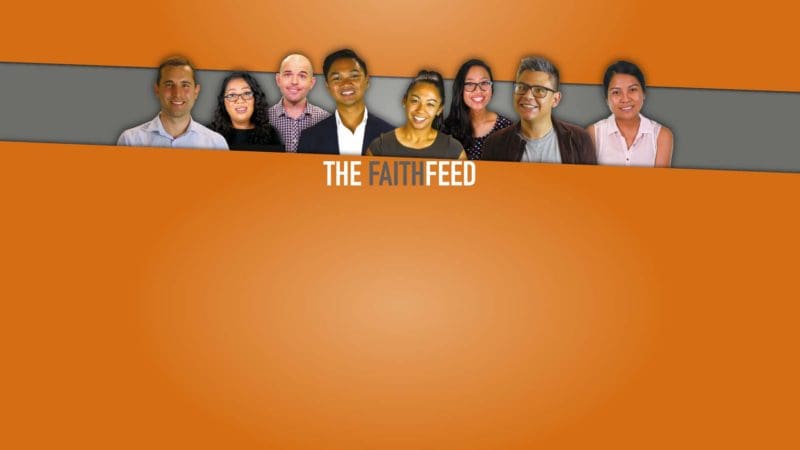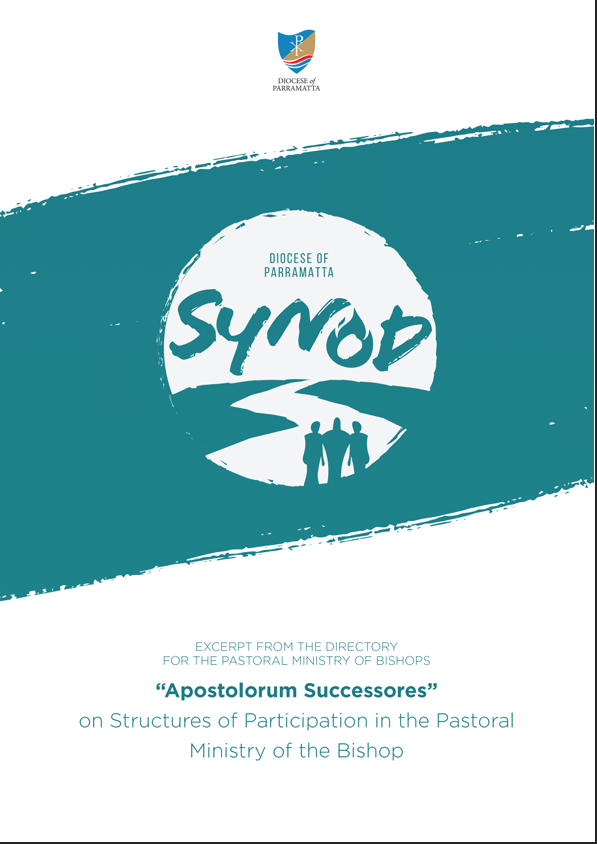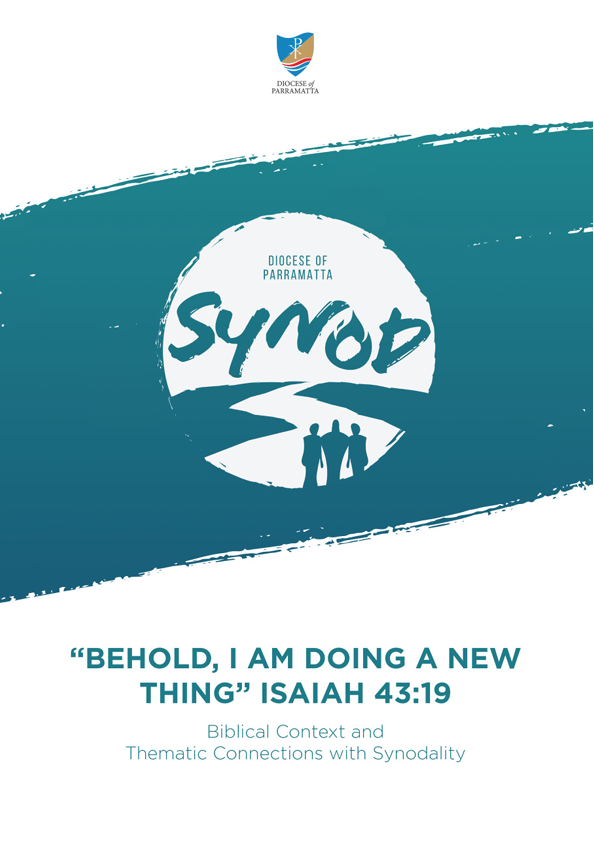This resource library is designed to nurture your faith and support you in carrying out the Church’s mission within your community. Various teams across the Diocese have created insightful downloads, fun activities, engaging videos, and enriching podcasts to help you deepen your connection with faith and actively contribute to the work of the Church. Explore, learn, and empower yourself to make a meaningful impact.
Browse by Topic / Series
Browse by Resource Type
To convert somebody, go and take them by the hand and guide them.
St Thomas Aquinas
Activities
Flyers / Posters
Infographics
Podcast Episodes
The topic was the importance of authentic Friendships at the last Theology Hour on Friday 13 May 2022 at ACU Blacktown Campus. Over 30 young adults gathered to connect and listen to the wisdom offered by Br Bernard Mary Fonkalsrud OFM Conv, based at Our Lady of the Rosary Parish, Kellyville.
Welcome to the At The Well Podcast, a podcast created to encourage young women in their pursuit for holiness in everyday life. Hosted by Qwayne Guevara, Rosie Drum M.G.L and Joy Adan, this pilot episode explains the reason for the podcast and explores the well-known encounter of Jesus and the Women at the Well.
In this episode, we are challenged with the question of how to have difficult conversations with those we love. Drawing from personal experiences, we share stories which have helped us discern how to nurture authentic relationships in good and difficult times.
We don’t just mean modesty with our clothing but also how we approach relationships with modesty. In this episode, we share stories on what has helped us to navigate the social pressures regarding modesty and embracing our dignity in Christ.
In preparing for Christmas, many often get caught up in the busyness of the season. We know there’s been time we have! In this episode, we discuss ways we are striving to keep Christ at the center of our preparations.
Looking forward to the year ahead, we answer a question that may help set the tone for the year to come. Finding joy in the little things could simply be recognising the gift of life itself. This episode explores the ways we can find joy where we may least expect.
The topic of vocations often comes up in our conversations with young women. We each share our vocation stories and the ways in which God continues to call us to live our vocations to the full.
It can be hard not to compare oneself to images of celebrities in the media. In this episode, we explore the gift of being a woman, created in the image and likeness of God. We discuss the Feminine Genius and how embracing this allows us to be free.
Our guest for this episode is a young woman and youth leader in our Diocese. Julia Hoban chats with Qwayne and Joy about the reality of COVID-19 and ways to stay connected in this time of uncertainty.
For the first time, we air a live recording of the At The Well podcast during the hopeful season of Easter. This episode, we share what the Resurrection means to us and the messages we received during a strange Easter under restrictions.
Videos
Saturday 14 October saw the first full day of the Diocese of Parramatta’s Synod, where resolutions from four out of six thematic areas were voted on by Members of the Assembly after prayer, listening and discernment.
The Diocesan Synod is an invitation to all to journey or walk together and to reflect the true nature of the Church as People of God. It is a time for the diocese to listen to the Spirit and discern the way forward, reflecting on its past, looking to the future, and making plans for growth and development.
Learn more about the next stages following the Synod assembly by visiting parracatholic.org/synod2023
View images from the Synod by visiting www.flickr.com/photos/parracatholic/albums
On Sunday 15 October, after two full days, the Diocese of Parramatta’s Synod gathering came to an end.
“This has been a historic event, and we give thanks to God for it,” said Bishop Vincent Long OFM Conv, Bishop of Parramatta said during the Closing Mass.
The Diocesan Synod is an invitation to all to journey or walk together and to reflect the true nature of the Church as People of God. It is a time for the diocese to listen to the Spirit and discern the way forward, reflecting on its past, looking to the future, and making plans for growth and development.
Learn more about the next stages following the Synod assembly by visiting parracatholic.org/synod2023
View images from the Synod by visiting www.flickr.com/photos/parracatholic/albums
On Friday 13 October, the Diocese of Parramatta kicked off its 2023 Diocesan Synod, a three-day gathering of over 280 delegates from across Western Sydney, the Blue Mountains and beyond to listen, discuss and pray about the future of the local Catholic Church under the theme “Behold I am doing a new thing” (Isaiah 43:19).
The Diocesan Synod is an invitation to all to journey or walk together and to reflect the true nature of the Church as People of God. It is a time for the diocese to listen to the Spirit and discern the way forward, reflecting on its past, looking to the future, and making plans for growth and development.
Learn more about the next stages following the Synod assembly by visiting parracatholic.org/synod2023
View images from the Synod by visiting www.flickr.com/photos/parracatholic/albums
The Diocese of Parramatta is set to celebrate another significant milestone in its young history – the beginning of the first-ever Diocesan Synod.
On Thursday 12 October 2023, hundreds of members of our faith communities in Western Sydney and the Blue Mountains gathered at St Patrick’s Cathedral, Parramatta, to celebrate this historic occasion with singing, dancing, prayer and witness during Catholic Youth Parramatta’s LIFTED Live in the Forecourt.
Normally celebrated around the Feast Day of Pope St John Paul II, patron saint of young people, this year’s LIFTED Live in the Forecourt invited young people to embrace the synodal journey the Diocese has been walking on for the past six months and to have their voices heard ahead of the three-day assembly this weekend.
Chris shares some of what he does for time out. A trip with his brother to Zion National Park in Utah, USA gave him the opportunity to step out of his regular routine, “listen” and “reflect” on aspects of his life.
Join Charlie as he asks Fr Jack Green all the questions that commonly get asked when preparing for your First Holy Communion.
Join Mickey as she asks Fr Jack Green all the questions that commonly get asked when preparing your child for the Sacrament of Penance.
During her visit to the Diocese of Parramatta on 3 February 2023, Sr Nathalie Becquart XMCJ, the Undersecretary of the Synod of Bishops, took part in a panel discussion with Australia’s Ambassador to the Vatican, Chiara Porro facilitated by experienced journalist, Geraldine Doogue AO. Joining Sr Nathalie, a Sister of the Congregation of Xavières, and Ambassador Porro for the conversation, were Paul McClintock AO of St Vincent’s Health and Kirsty Robertson, CEO of Caritas Australia.
If something is true, it is good and beautiful; if it is beautiful; it is good and true; if it is good, it is true and it is beautiful. And together, these elements enable us to grow and help us to love life, even when we are not well, even in the midst of many problems. True education enables us to love life and opens us to the fullness of life.
POPE FRANCIS XVI
Search all resources
Remembering that Scripture must aways be at the heart of the Synodal Journey, Bishop Vincent has given much thought, and in prayer has found the scripture passage that will guide us in this process.
The topic was the importance of authentic Friendships at the last Theology Hour on Friday 13 May 2022 at ACU Blacktown Campus. Over 30 young adults gathered to connect and listen to the wisdom offered by Br Bernard Mary Fonkalsrud OFM Conv, based at Our Lady of the Rosary Parish, Kellyville.
The one thing all humans have in common is that each of us wants to be happy, says Brother David Steindl-Rast, a monk and interfaith scholar. And happiness, he suggests, is born from gratitude. An inspiring lesson in slowing down, looking where you’re going, and above all, being grateful. This Saturday Sessions guide offers a reflection for your small group.
Saturday 14 October saw the first full day of the Diocese of Parramatta’s Synod, where resolutions from four out of six thematic areas were voted on by Members of the Assembly after prayer, listening and discernment.
The Diocesan Synod is an invitation to all to journey or walk together and to reflect the true nature of the Church as People of God. It is a time for the diocese to listen to the Spirit and discern the way forward, reflecting on its past, looking to the future, and making plans for growth and development.
Learn more about the next stages following the Synod assembly by visiting parracatholic.org/synod2023
View images from the Synod by visiting www.flickr.com/photos/parracatholic/albums
On Sunday 15 October, after two full days, the Diocese of Parramatta’s Synod gathering came to an end.
“This has been a historic event, and we give thanks to God for it,” said Bishop Vincent Long OFM Conv, Bishop of Parramatta said during the Closing Mass.
The Diocesan Synod is an invitation to all to journey or walk together and to reflect the true nature of the Church as People of God. It is a time for the diocese to listen to the Spirit and discern the way forward, reflecting on its past, looking to the future, and making plans for growth and development.
Learn more about the next stages following the Synod assembly by visiting parracatholic.org/synod2023
View images from the Synod by visiting www.flickr.com/photos/parracatholic/albums
On Friday 13 October, the Diocese of Parramatta kicked off its 2023 Diocesan Synod, a three-day gathering of over 280 delegates from across Western Sydney, the Blue Mountains and beyond to listen, discuss and pray about the future of the local Catholic Church under the theme “Behold I am doing a new thing” (Isaiah 43:19).
The Diocesan Synod is an invitation to all to journey or walk together and to reflect the true nature of the Church as People of God. It is a time for the diocese to listen to the Spirit and discern the way forward, reflecting on its past, looking to the future, and making plans for growth and development.
Learn more about the next stages following the Synod assembly by visiting parracatholic.org/synod2023
View images from the Synod by visiting www.flickr.com/photos/parracatholic/albums



